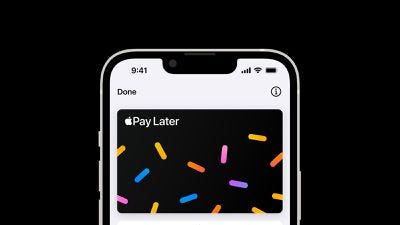Welcome back, to Fintech Weekly.
This week’s topics include Open Banking, BNPL, CBDCs, and SBF takes to the stand in the trial of FTX. Too many acronyms? All will be explained below.
🇺🇸 How will the US catch up with Open Banking standards?
🇮🇪 Where did Coinbase pick as their MiCA hub?
💸 Who has Stripe partnered with to enable Open Banking payments?
When did Apple Pay Later become available to all US users?
⚖️ Why did Sam Bankman Fried ignore legal advice and decide to testify?
💱 What is UDPN and what does it mean for SWIFT?
🇺🇸 How will the US catch up with Open Banking standards?
For our 6-month review newsletter in recent weeks we discussed how the UK remains the global leader when it comes to Open Banking, after the CMA pioneered the move toward Open Banking in 2017, the number of active users of Open Banking in the UK passed 7 million (~10% of the population) earlier this year. On the other hand, we highlighted the struggles of the US to keep pace with the development of Open Banking, partly due to the difficulty in implementing regulatory standards across all 50 states.
The Consumer Financial Protection Bureau (CFPB) has recently taken a big step to accelerate the move toward Open Banking by proposing the Personal Financial Data Rights rule which activates a dormant provision of law enacted by Congress more than a decade ago (Section 1033 of the 2010 Dodd-Frank Wall Street Reform and Consumer Protection Act.). The law aims to enhance competition (one of the critical pillars of Open Banking) by forbidding financial institutions from hoarding a person’s data and requiring companies to share data in the person’s direction with other companies offering better products.
The proposed rule would ensure that consumers can:
Get their data from financial institutions at no charge through safe, secure, reliable interfaces
Have a legal right to share their data
Can walk away from bad services.
The rule would protect both consumers and financial firms through:
Robust protections to prevent unchecked surveillance and misuse of data
Meaningful consumer control by allowing customers to revoke access to their data
Moving away from risk data collection practices like screen scraping
Setting fair industry standard settings
The CFPB said it accepts comments on the proposal until Dec. 29 and plans to finalize the rule by next Autumn. The CFPB recognize that smaller financial firms may struggle to comply with new rules so the requirements of the rule would be implemented in tiered phases. The proposal is tied to President Joe Biden’s efforts to boost competition in several sectors, including healthcare, technology and transportation. While this is a plus for consumers, it is also music to the ears of Fintech firms in the US who will look forward to having standardised, regulatory-backed access to users’ financial data.
Sources:
Read more on this story from Consumer Finance, Payments Dive, Bloomberg Law
If you are enjoying the content so far, please take a moment to share the newsletter, it really helps me grow the platform and find new readers.
In Other News:
🇮🇪 Where did Coinbase pick as their MiCA hub?
In last week’s newsletter, we discussed how Europe is leading the way when it comes to regulating cryptocurrencies and digital assets. Market in Crypto Assets (MiCA) is expected to be a global regulation benchmark. We discussed the 18-month transitional period that will be granted to crypto firms to operate without an EU licence, meaning MiCA may not cover customers until July 2026. This week, Ireland was the beneficiary of MiCA as Coinbase, the crypto exchange has chosen the emerald isle as its regulatory hub in the European Union (EU) in advance of MiCA laws being introduced. This will allow Coinbase and other crypto service providers to operate across the 27-nation bloc with a license from just one of the national regulators. Coinbase praised the supportive political and regulatory environment that Ireland offers to Fintech companies. The Irish Government are starting to reap the rewards of significant work it has conducted for the last several years to support Fintech firms, including those in the blockchain and crypto sector. Other firms that are looking to or have already set up camp in Ireland include crypto exchange Gemini, Moonpay, the crypto payment firm, and Kraken. In a statement, Coinbase warned that, by contrast, the US risks losing leadership due to their lack of precise regulation in this sector.
Sources:
Read more on the story in Coindesk and Cryptopolitan
💸 Who has Stripe partnered with to enable Open Banking payments?
Payments giant Stripe has taken a significant step to bring Account to Account (A2A) to the mainstream as TrueLayer has become the first European Open Banking payment option listed on Stripe’s Payment Element, an embeddable UI component for checkout pages. According to Statista, in the UK alone, Stripe is the payment solution powering over 71,000 websites, representing almost 5% of all websites in the region. This move means that merchants across the UK and EU will be able to configure TrueLayer as a payment method. Customers will be presented with this option at checkout and be redirected to TrueLayer’s payment page to confirm their payment either within their bank app or online bank account.
Sources:
Read more on Finextra and Fintech Times
When did Apple Pay Later become available to all US users?
Apple is continuing its embedded finance strategy, i.e. the process of integrating financial services or products into the offering of a traditionally non-financial company. The eagle-eyed observers at MacRumors spotted that following the ‘invite-only, early-access’ release of Apple Pay Later for US-based users back in March, Apple appear to have fully launched the product for all qualifying US residents this week as Apple Pay Later is now widely available in the Wallet app and Apple removed the following sentence from all Apple Pay Later support documents today: “Apple Pay Later is currently only available to customers invited to access a prerelease version.” Apple Pay Later offers a BNPL solution to Apple Wallet users for eligible purchases between $75 and $1000 made on iPhones and iPads. With Apple entering the BNPL sector it is sure to increase the scrutiny for all services including the likes of Klarna and Affirm. BNPL is currently not regulated as credit, but research has shown that users are increasingly relying on BNPL to cover the cost of non-luxury expenses including groceries. Goldman Sachs serves as the “issuer of the Mastercard payment credential used to complete Apple Pay Later purchases”, but reports suggest that Goldman Sachs is looking to exit their partnership with Apple.
Sources:
Read more on The Verge and MacRumors
⚖️ Why did Sam Bankman Fried ignore legal advice and decide to testify?
In our latest update on the trial of the founder of the former crypto exchange, FTX, this week the man himself, Sam Bankman Fried, has taken to the stand to testify in his case. This is explicitly against the advice of his legal team but SBF now follows the lead of Theranos founder Elizabeth Holmes who testified in her fraud trial last year, the result of which was Holmes being convicted of four of the 11 criminal counts she faced. Time will tell whether Bankman Fried will be convicted of the potential 100+ years in prison he is facing. Still, the decision to overlook his legal advice to accept the chance to speak in public is in keeping with the trial to date which saw him spend his last few weeks in prison for releasing the diaries of Caroline Elison ahead of her testimony. After being sworn in shortly before 10 am local time on Friday Sam Bankman Fried admitted to making ‘mistakes; while running FTX, and also that, he knew ‘basically nothing’ about cryptocurrencies.
Sources:
Read more on the story in Wall Street Journal, Reuters, Financial Times, The Guardian
💱 What is UDPN and what does it mean for SWIFT?
We have discussed the development of Central Bank Digital Currencies and Stablecoins many times over recent weeks, and examined the work SWIFT is undertaking to maintain their relevance in a world which is looking to disrupt the way cross border payments are handled. SWIFT announced that three central banks are beta-testing its innovative solution for interlinking CBDCs. It looks like SWIFT will have competition in this field as Deutsche Bank and Standard Chartered’s SC Ventures are testing a system that will allow blockchain-based transactions, stablecoins, and central bank digital currencies (CBDCs) to talk to one another. The system is known as the Universal Digital Payments Network (UDPN), a permissioned blockchain system composed of validator nodes run by an alliance of banks, financial institutions and consultancies. The UDPN is currently made up of approximately 25 organizations, including banks from the U.S., Australia, Latin America and Europe.
Sources:
Read more on the story on Coindesk
Thanks for reading, as always, if you have any feedback or suggestions for topics I could cover in future newsletters please let me know by commenting through the link below.


